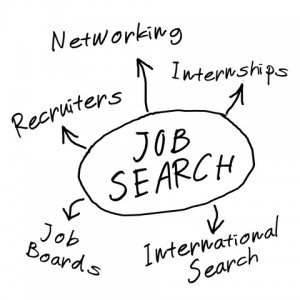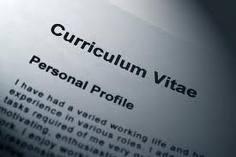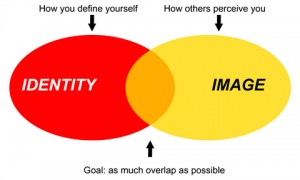No More Pokes: 10 True Stories
– How Facebook Ruined My Career
1. Facebook Comment Cost me a £6000 Payout
Kate Furlong, a Royal Bank of Scotland employee was due a nice £6000 redundancy payout. While off work due to an illness, Kate received a redundancy notice through the post and promptly added her disgust on her facebook wall ”I speak for myself when I say WoOOOOooooOooooHOoooOooOoo’ it was pretty damn obvious something like this was coming. I’m neither stupid nor naive … and quite honestly it is the best news ever as far as I am concerned!”
She later followed this up with ”It was not unexpected. I’ve just hung on by my fingertips to stick around long enough for a nice payout when they could’ve had me out long ago without a penny! More fool them! Haha! Xx.” This Facebook insult resulted in the Royal Bank of Scotland holding a disciplinary hearing before deciding to sack Furlong without a penny, with the employer saying that she broke a secrecy agreement.

Source
2. Facebook Got Me the Sack
A computer technician at a USA high school was fired, after two students thought that he was ‘creepy.’ To check out their theory the boys set up a fake facebook account posing as a 16 year old girl to trick him into asking her out. The unsuspecting worker and father of two fell for the trick and invited the fake ‘Sarah’ out telling her how cute she was, before being sacked by the school
The father-of-two was aware that she was 16 from the get go, with the students posing as Sarah telling the older male that she was a model, the perpetrator quickly responded claiming to be interested in photography. These exchange took place over several months, before the police became involved.

Source
3. Offensive Facebook Messages Ruins Footballers Career
Bygrave a none league footballer came through the ranks at Reading, before playing for Gillingham, Weymouth, Histon and Hayes & Yeading until being promptly sacked after admitting to making numerous comments about race, disability and paedophilia on Facebook. Bygrave later issued a statement saying he “deeply regretted” his actions.
He said: “As much as I totally accept that they are inappropriate and will offend many people, I believed I was just repeating banter and jokes from numerous sources”

Source
4. Fat Taunts Ends Builders Career
In competitive times 3 builders secured a building contract with Dennis Owen from Wales. When they arrived the trio thought Dennis was overweight and posted a picture of a pair of his large sized jeans which they had found while working in his house — with the comment “the fattest person I have seen in my life” on their face book wall.
We don’t know how true this statement was, but we know that they got a lot of laughs from their mates until the Dennis made his complaint, which resulted in the trio losing a lucrative building contract.

Source
5. Pulling a Sickie
Kyle Doyle, a call centre worker from Sydney, after a big night out decide early in the morning as the room was spinning that he would ring in sick. After e-mailing his manager Kyle was still level headed enough to gloat about his master mind scheme on facebook.
Unfortunately for the 21-year-old his boss had seen his Facebook status which read: “Kyle Doyle is not going to work, f… it – I’m still trashed. SICKIE WOO!”
The email exchange between the two ended with boss Niresh Regmi posting the Facebook page on his email under the message: “I believe the proof that you are after is below”.
At this Doyle realised he had been caught in the act and seemed to accept his fate, writing back: “HAHAHA LMAO epic fail. No worries man.”

Source
6. Women Sacked on for Complaining About Her Boss on Facebook
Hoping to release the Sunday night stress after thinking about work, Lindsay decide to vent her anger on facebook posting “I hate my Job” the wall post continue in severity accusing her employer of being lecherous towards her.
Only a couple of hours later, Brain her boss, replied with ‘Firstly, don’t flatter yourself. Secondly, you’ve worked here five months and didn’t work out that I’m gay?
‘I know I don’t prance about the office like a queen, but it’s not exactly a secret.
‘Thirdly, that “s*** stuff ” is called your “job”, you know, what I pay you to do. And lastly, you also seem to have forgotten that you have two weeks left on your six-month trial period. Don’t bother coming in tomorrow.
‘I’ll pop your P45 in the post and you can come in whenever you like to pick up any stuff you’ve left here. And yes, I’m serious.’

Source
7. Facebook Post Used as Evidence in Exam Cheat
Two Belgian college student after being caught exchanging responses during the tests have been flunked for cheating on their written exams.
Exam supervisors had noticed something suspicious during the exams but had failed to find any hard evidence of cheating. But after a couple of threads on Facebook surfaced, proving that the cheating had been going on for quite a while and showing that the students were pretty proud of the fact they hadn’t been caught.
The council ultimately determined the conversations on the social network could be used as evidence, resulting in the flunking of the pupils after they confessed to cheating

Source
8. Military Betrayal to President Obama
The U.S. military discharged Sgt. Gary Stein for postings 15 words on Facebook that have ruined his nine-year career
Stein openly criticized U.S. President Barack Obama on his Facebook profile and posted comical images on a Facebook Page. Online comments included “Obama is the economic enemy … He is the religious enemy … he is the ‘Fundamentally change’ America enemy … he IS the Domestic Enemy.”
The Marine Corps decided to take administrative action after Stein declared “Screw Obama and I will not follow all orders from him” on Facebook. Stein said his statement was part of an online debate about NATO allowing U.S. troops to be tried for the Quran burnings in Afghanistan.
He explained he would not follow orders from the president if it involved detaining U.S. citizens, disarming them, or doing anything else that he believes would violate their constitutional rights. He later clarified the original statement, saying he would not follow “unlawful orders”.

Source
9. £10 Cost a School Girl Her Part Time Job
Chelsea Taylor a Manchester school girl recently logged onto her social networking site to find a mis-spelt dismissal letter posted on her page -littered with grammatical errors due to the poor girl losing £10, but Elaine Sutton the manageress at Cookies in Leigh Greater Manchester softened the blow with two kisses.
The message read: ”hiya (sic) Chelsea its (sic) Elaine from work. Sorry to send u (sic) a message like this but bin (sic) tryin (sic) to ring u (sic) but gettin (sic) no joy.
”I had to tell the owner bout (sic) u (sic) losin (sic) that tenner coz (sic) obviously the till was down at the end of day (sic). she (sic) wasn’t very pleased at all and despite me trying to persuade her otherwise she said I have to let u (sic) go. I’m really sorry.
”If u (sic) call in in (sic) the week with your uniform i’ll (sic) sort your wages out. Once again I’m really sorry but it’s out of my hands. Elaine xx.”

Source
10. Not Even God Can Save You From Facebook
For years Christians have been spreading the good word of our lord, but when Maria Jesus Galan a Nun from the Santo Domingo el Real convent in Toledo, Spain used facebook to pass on the good message to her 600 followers she was quickly kicked out of the nunnery.
10 years ago the nunnery invested in a computer to upload the convents achieves, which Sister Maria was responsible for. She then went on to use the internet for online banking and other online initiates which in the end won her a governmental price for her digital initiatives. With this new fame she increased her facebook popularity which was the start of her downfall.
Her fellow nuns reportedly claimed that Sister Maria’s Facebook activity “made life impossible.” She was therefore asked to leave and now lives with her mother.
At least Sister Maria understands the opportunities an online life can offer. She used to have 600 Facebook friends. Now her Facebook community numbers more than 5,000

Source
If You Enjoyed This Article You May Also Enjoy Reading


















